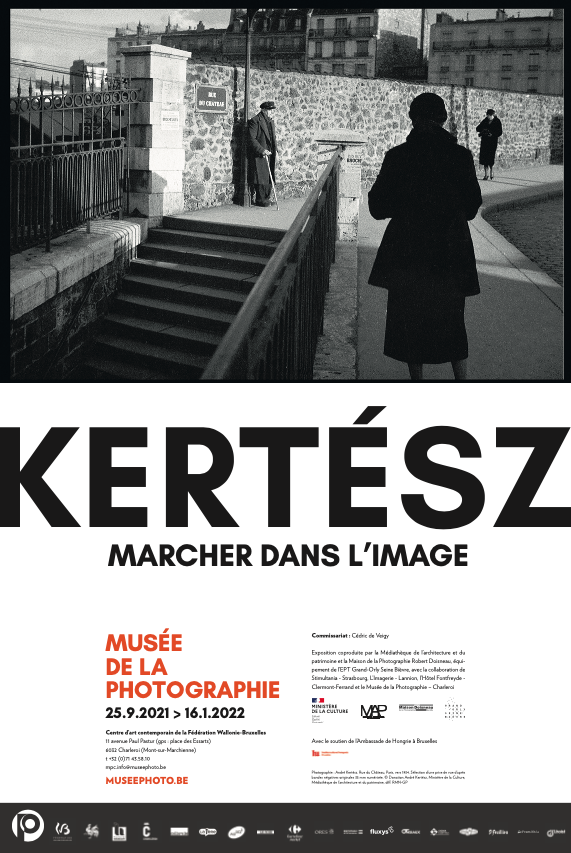André Kertész. Marcher dans l’image
André Kertész’s vision opened up new paths in photography in the 20th century.
André Kertész’s vision opened up new paths in photography in the 20th century. An inspired amateur at the age of eighteen, a craftsman of optical research for the New Vision at the age of twenty-eight, a pioneer of media issues in reporting at thirty-six, he greatly contributed to the evolution of the medium. If several generations of his colleagues have gone back to his pictures and have been nurtured by his approach, it is because he is the one who, without effect or ostentatious display, showed how it was possible to pursue the work of a photographer serenely throughout his life, away from currents and on the fringe of commissions, giving free rein to a strolling eye. Born in Budapest in 1894, Kertész settled in Paris bet- ween 1925 and 1936 before leaving to live in New York, where he would die in 1985. “We all owe something to Kertész”, Henri Cartier-Bresson said in 1962. “Perhaps more than any other photographer, he understood the specific aesthetics of the hand-held camera and made it manifest”, remarked John Szarkowski, curator of the Mu- seum of Modern Art, New York, in 1973.
Many historians have since acknowledged Kertész as being the “father of 24 x 36 mm photography”, but no study has yet distinguished the photographs which, between 1929 and 1936, mark the beginnings of his use of the Leica, an innovative camera which set him off on his photographic wanderings, so renewing his understanding of photography. At the end of his life, Kertész made all his pictures accessible by donating his negatives to the French State. From meticulous research conducted on his original films, now preserved today by the Médiathèque de l’Architecture et du Patrimoine, this exhibition attempts to honour his legacy and to tell the story of that singular moment when the meeting between a man and a camera makes it possible for photography to discover a yet unexplored vocation for itself: capturing on the pavement the attention that connects us to each other.
Commissariat : Cédric de Veigy
This exhibition is co-produced by the Médiathèque de l’Architecture et du Patrimoine and the Maison de la Photographie Robert Doisneau, equipment of EPT Grand-Orly Seine Bièvre, with the collaboration of Stimultania - Strasbourg, L’Imagerie - Lannion, Hôtel Fontfreyde - Clermont-Ferrand and the Musée de la Photographie - Charleroi.
The scientific research conducted on André Kertész’s 35 mm films benefited from support from the DRAC Ile-de-France


André Kertész Rue du Château, Paris, vers 1934. Sélection de 2 prises de vues d’après bandes négatives originales 35 mm numérisées. © Donation André Kertész, Ministère de la Culture, Médiathèque de l’architecture et du patrimoine, diff. RMN-GP
